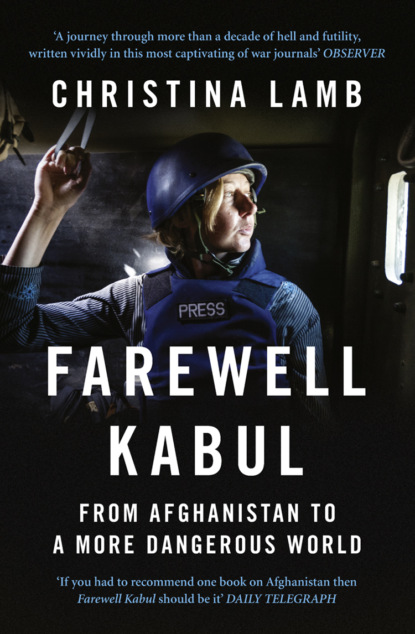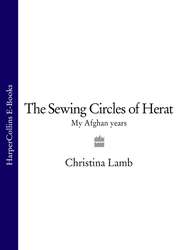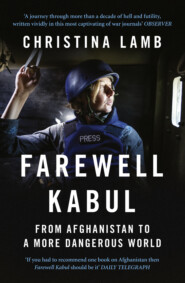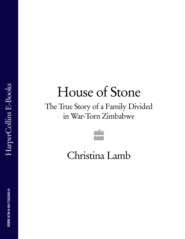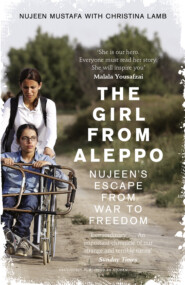По всем вопросам обращайтесь на: info@litportal.ru
(©) 2003-2024.
✖
Farewell Kabul: From Afghanistan To A More Dangerous World
Настройки чтения
Размер шрифта
Высота строк
Поля
3
Making – and Almost Killing – a President (#ue110efdd-99ae-5c21-ae82-f889fc3c445e)
The war that would never end started in a way that it never should. US special forces captain Jason Amerine and his team from the 5th Special Forces Group were eating ‘truly bad pizza’ in Fortuna Pizzeria in the town of Aktogay in Kazakhstan on the evening of 11 September 2001 when his mobile rang. It was Dan Pedigor, the Defence Attaché from the local US Embassy, with startling news. A plane, he said, had flown into the World Trade Center.
Amerine’s reaction was ‘Oh wow.’1 (#litres_trial_promo) In primary school he’d read a book about air disasters, and had made a diorama of the B25 Mitchell bomber that hit the Empire State Building in thick fog in 1945. He imagined something like that.
They went back to their pizzas, talking animatedly. Many of the men were thinking about home. They were in Kazakhstan to train Kazakhs in small-unit tactics for counter-insurgency, and had just three days left. Amerine was feeling nostalgic. His divorce had come through in June, and at thirty he thought it was also time for a career change. He had dreamed of being in the special forces since he was a teenager in Hawaii and first met a Green Beret, and now he was an experienced captain, leading a team specialising in parachute insertions behind enemy lines. He knew that as an officer you only have so many opportunities to lead men in the field, then you’re on the staff – and he could not imagine doing an office job. With not much going on in the world, he assumed this would be his last deployment.
Then the phone rang again, and turned everything upside down. A second plane had hit the Twin Towers. Amerine knew then that his country was at war: ‘It was OK, it’s an attack, and had to be al Qaeda who were operating out of Afghanistan.’
Shocked by the news, the men went back to their quarters, and called home to check on their families. Amerine and his sergeant talked late into the night about what might happen. He knew the US would go to war in Afghanistan, and had no doubt that they would be part of it.
What had not occurred to him was that they would be stuck. Although they were probably the special forces team nearest to Afghanistan, military bureaucracy meant they had to go back to base in the US to be assigned orders. However, war had come from the skies, and air traffic closed down around the world for almost a week. The men were left waiting in Almaty, the old Kazakh capital, and he tried to distract them with some sightseeing. One day they went to the World War II museum which was full of displays of big battles fought by the Soviet Union that emphasised all the deaths. One of their guides was a former Soviet officer who had served in Afghanistan fighting the US-backed mujaheddin. ‘It is impossible to win in that country,’ he warned them. ‘Don’t trust the Afghans, and just make sure you come back alive.’
It was 20 September when Amerine and his men finally got back to their base of Fort Campbell in Kentucky. He found it ‘surreal’ to see how everything had already changed. The airport was guarded by men with guns, and there was an Apache helicopter gunship patrolling the highway outside the gate.
Several other special forces teams had already been deployed to bases in Central Asia. Amerine’s team practised live firing and basic soldiering skills while they anxiously waited to be assigned a mission. They presumed this would be to link up with Northern Alliance commanders in northern Afghanistan, and destroy al Qaeda safe havens. Finally, on 10 October, three days after the bombing of Afghanistan started, they were sent back to Central Asia. They had been chosen, along with another team, for the next deployment, and were flown to K2 airbase in Uzbekistan, where they waited.
Two teams were sent to northern Afghanistan, and eventually, after two weeks, Amerine was told that his team would be heading to south-eastern Afghanistan to link up with Abdul Haq and help him start an insurgency. Amerine knew little about him, other than that he was one of Afghanistan’s best commanders from the war against the Soviets. However, within a few hours the news came that Abdul Haq had been captured by the Taliban and executed, so they were to ‘stand down’. ‘That kind of put into perspective the kind of risk the teams were taking,’ said Amerine.
The next day they were told they were being sent to join Hamid Karzai. Nobody seemed to know anything about him, other than that he was a Pashtun, and was trying to raise some kind of Southern Alliance. The information they were given did not even include a photograph. Amerine envisaged ‘some grumpy warlord, missing an eye, with a scar on his cheek who spoke no English’. He sent one of his men to the bazaar to buy a ‘really big knife we could give to our warlord, and say, “We’re here to fight with you, here’s a knife.”’
Amerine along with eleven of his Green Berets was flown to the Pakistani airbase Jacobabad, in the southern province of Sindh, which the Americans were secretly using. Karzai and his men were waiting there. They had already been into Afghanistan, but had found themselves woefully ill-equipped. ‘We weren’t prepared at all,’ Karzai later told me. ‘I went in just in a shalwar and vest, and we ended up sleeping on mountains. It was so cold, even curled up. We finally got to Tarin Kowt [capital of Uruzgan], but people told us there were still lots of Taliban and we should go back.’2 (#litres_trial_promo)
Some of the people he met up with betrayed them, and the Taliban came in pursuit. But Karzai got a message out on his CIA phone, and was luckier than Haq – helicopter-borne US Navy Seals flew in to rescue them and take them to Jacobabad.
When Amerine met the less than athletic Karzai, he was astonished. Instead of a warlord, he found an educated and dignified man speaking impeccable English. ‘In some ways his total lack of military experience made it easier,’ said Amerine. ‘I knew immediately there would be no games, no swaggering or posturing – this was someone I’d be able to talk to.’ He left what had become known as ‘the BFK’ (Big F—ing Knife) in his backpack.
Karzai was accompanied by seven or eight tribal leaders who also did not look as if they would be much use on a battlefield. ‘Most were older, they seemed tired and a couple looked kind of frail,’ recalled Amerine. ‘We figured out he had no forces pretty quickly.’ Only one man stood out. ‘There was this guy Bari Gul with an angry scowl on his face the whole time, he looked a real fighter.’
Karzai seemed unfazed by the task ahead, despite what had happened to Abdul Haq and his own narrow escape. He told Amerine he didn’t think they would have to fight at all. ‘He believed we’d pretty well show up in Uruzgan, that the main town of Tarin Kowt would rise up and that would be it, the Taliban would surrender.’ Amerine was less convinced. ‘If it’s peaceful that’s great, but we’ll plan for it to be a lot more difficult,’ he told him.
While we in the media sat in our hotels in Quetta watching the bombing on TV, Amerine, Karzai and their men gathered around a large map of southern Afghanistan every day for a week, drinking endless cups of green tea, and formed a plan.
In Amerine’s eyes the aim was to ‘infiltrate, grow a force, lay siege to Tarin Kowt, then grow a bigger force and slowly make our way to Kandahar and compel the Taliban to surrender, which would be the end of them’.
Their maps were so poor that they didn’t even know there was only one road between Tarin Kowt and Kandahar. Also, Amerine had never actually raised an army anywhere. Nor was he pleased to discover that he was supposed to take Karzai’s CIA handler Casper and four other agents, which would mean he could take fewer of his special forces team than he wanted.
When Karzai asked Amerine about America’s long-term plans for Afghanistan, he had to admit he had no idea.
There was another problem. Amerine’s commander, Colonel John Mulholland, had given orders that they were not to go into Afghanistan unless Karzai had at least three hundred men on the ground. ‘He meant three hundred bright smiling faces greeting us,’ said Amerine. ‘Karzai said there are more than three hundred men, but they won’t gather unless I go in.’ As it was, on the night they chose to infiltrate because the moon would be at its lowest, Amerine couldn’t reach Mulholland on the phone. Mulholland’s deputy told them to go ahead.
They needed to get going. The bombing campaign was having a quicker impact than expected, and by the time they set off on 14 November, Kabul had already fallen. It was around midnight when Karzai and his seven tribal elders, Captain Amerine and his eleven-man team, and the CIA agent Casper and four more spooks, climbed into five heavily armed Black Hawk helicopters which would drop them deeper behind enemy lines than any other Americans. The soldiers were in camouflage, and most sported beards grown over the previous month to help them blend in with the locals, though close up their thickly muscled builds would give them away. Apart from their weapons and personal GPS, each carried a so-called ‘blood chit’ with a message in seven local languages. ‘I am an American and do not speak your language,’ it read. ‘I will not harm you. I bear no malice towards your people.’
The infiltration was a disaster. One of the helicopters was blown off course by all the dust and dropped four of Amerine’s men in the wrong place, which meant the rest had to wait half the night for them to show up. When the weapons and equipment were airdropped, hundreds of Afghans appeared from the mountains and stole everything, including laptops and the SOFLAM for calling in airstrikes. The Americans were taken to a village on a bend in the Helmand River that was not the place for which they had meticulously planned and studied. It was also clear that Karzai had few people.
Even so, Amerine believed the plan could work, because they would build the force bit by bit. He estimated they would need six months to take Tarin Kowt. He had reckoned without the Afghans. After just three days he got a note from Karzai to say that the people of Tarin Kowt had risen up and taken the town from the Taliban. Amerine was flabbergasted. It turned out that the townspeople had heard that Kabul had fallen to the Northern Alliance, so they stormed the palace of the Taliban Governor of Uruzgan, dragged him out and hanged him. They then drove out the remaining Taliban and declared the town free. To Amerine, this was a disaster. The powerbase of the Taliban was the south, and Uruzgan was Mullah Omar’s home province. Amerine was convinced the Taliban leader and his men would not give that up so easily.
Karzai commandeered some local pick-ups and a bus, and they moved into Tarin Kowt that evening and set up headquarters in a compound. Hours later, as they were about to eat dinner, a message came that an enormous Taliban convoy was on its way from Kandahar to retake Tarin Kowt. Eighty vehicles, they were told. Even allowing for Afghan exaggeration, Amerine was worried. ‘Doing the math in my head, that was a lot of guys.’
He asked Karzai to round up all able-bodied men from the town. After half the night Karzai had managed to find only thirty men. They borrowed some vehicles and drove off, having to stop for petrol on the way. Just south of Tarin Kowt they found an ideal vantage spot from which to protect the town, a bluff that overlooked a wide valley through which the Taliban would have to pass. The men positioned themselves along the ridge, some of the Afghans smoking hashish, and Amerine’s radio operator called in air cover. Soon three F18s were hovering high above at around 30,000 feet.
It was not long before one of Amerine’s men spotted something glinting between the hills. It was the Taliban convoy, so long that it looked like an endless snake. Amerine’s radio operator contacted the US pilots overhead and pronounced the vehicles ‘cleared hot’, meaning they could start bombing. The first bomb missed, but the second hit the lead vehicle, turning it to dust and flame. However, when Amerine turned around, his own Afghan fighters were all jumping in their trucks to flee. They had never witnessed American air power before. Without Karzai, who had stayed back in town, Amerine had no translator to explain to them that the airstrikes were theirs, and they should stay.
‘I got really frustrated and mad,’ said Amerine. ‘We had no trucks of our own, and I’d been warned by one of the CIA guys to make sure we took the car keys from the guerrillas, but I hadn’t done that.’ The Americans had no choice but to jump in the fleeing trucks. ‘It felt like we were stealing defeat from the jaws of victory,’ he recalled. ‘In that moment we lost Tarin Kowt. People would be slaughtered, and there wasn’t anything I could do. I even thought about shooting one of the drivers to take a truck, but if I shot one of our guerrillas they’d never trust us.’
Amerine thought they would just have to grab Karzai from the town and leave. However, when they got back and told him what had happened, Karzai managed to get them two trucks and they drove back. There was not enough time to return to the bluff, but they got to the edge of town and started calling in airstrikes, having figured out that the Taliban were advancing along three paths from the valley in a three-pronged attack.
Word went out at US Central Command that a lone team of Green Berets was under attack from hundreds of Taliban, and F14s and F18s were scrambled from all over the country. ‘Every available US aircraft with bombs was in Tarin Kowt to help us,’ said Amerine. ‘It was this incredible feeling that the might of the military was coming to assist. They knew that our lives were pretty much in their hands.’
One of the pilots looked down from overhead and radioed, ‘Where are the friendly forces?’
‘OK, so see the two trucks …’ replied Amerine.
‘That’s it?’ the pilot asked incredulously.
Despite the massive display of air power the bombs could not wipe out all the Taliban, and some made it into town. ‘What really pushed it over the edge was the people of the town came out with guns,’ said Amerine. ‘At first we were shooing them away, but then we realised they were actually there to fight with us. We killed hundreds of Taliban that day.’
With Tarin Kowt won, over the next three weeks Amerine’s team began moving south towards Kandahar, which was still firmly in Taliban hands. They set up a headquarters on the way at a place called Damana. From there, on 3 December they launched an attack to capture the town of Shawali Kowt and its hill, which overlooked a vital bridge over the Argandab River towards Kandahar. There was intense fighting, and the Taliban counterattacked. One of Amerine’s men, Wes, was shot in the neck though luckily the bullet missed an artery. Eventually the Americans fought them off, and by the next day had taken the hill, giving them control of the bridge.
Yet when Amerine radioed the news to his headquarters, he was ordered to give up the hill. ‘It was a complete foul-up,’ he said. ‘We’d had two days of fighting and no sleep at all. I was very angry.’ The Afghans with them were baffled as they retreated, and with no interpreter it was impossible for Amerine to explain.
‘What seems to have happened is that up till then in the war there were no American casualties in battle [just one from an accidental airstrike in the north],’ he said. ‘At that point fighting up front with the guerrillas wasn’t the norm. So when I radioed that one of my men was shot, there was this shock – “What are your men doing, putting themselves in harm’s way?” I think someone at some level thought there must be a safe area we could be operating from, but they didn’t understand – sorry, we are behind enemy lines, and the guerrillas won’t fight unless we are up front.’
The next day they were ordered to retake the hill, which they did, christening it the Alamo.
While Amerine and Karzai were battling it out with the Taliban in southern Afghanistan, 3,000 miles away in Bonn a group of twenty-five Afghans were huddled in a castle on a wooded hill overlooking the Rhine, trying to form a government. Chairing the meeting was Lakhdar Brahimi, the veteran diplomat and former Algerian Foreign Minister who was the United Nations’ Special Envoy for Afghanistan. He had thought the Taliban would hold on till spring, but then cities started falling like dominoes – Mazar-i-Sharif, Kabul, Herat – so the Northern Alliance controlled more than half the country. This would not have been acceptable to Afghanistan’s Pashtun majority, or indeed its neighbour Pakistan, so there was a sudden rush to come up with a more representative interim administration before it was too late.
The White House wanted to do this at Bagram airbase, but Brahimi insisted it needed to be neutral territory. The Germans offered their official guesthouse, the Petersberg Hotel, a site laden with history. It was there in 1949 that the three occupying powers, Britain, France and the US, had signed the agreement paving the way to the birth of the German Federal Republic.
The aim of the Bonn Conference was to form an interim administration which would run the country for three to six months until a loya jirga, a traditional gathering of elders, could be held to decide Afghanistan’s future. There were four delegations – the main ones being the Northern Alliance (including representatives from General Dostum and Ismael Khan) and the Rome group (royalists loyal to the ex-king, Zahir Shah, to which Karzai belonged), then two smaller groups: the Cyprus group (intellectuals thought to have ties with Iran) and the Peshawar group (including the powerful Gilani family). No Taliban were invited, for this was a conference of victors – something that would be rued later. Most of the Afghans were dressed in suits, and aside from the Northern Alliance, many were émigrés, well-educated and Westernised. One of the few in a turban was Pacha Khan Zadran, a warlord. The meeting was opened on 27 November by German Foreign Minister Joschka Fischer, and tasked with producing a government within a week. That was the deadline because the hotel was then booked for a conference of dentists.
Even without the Taliban, getting an agreement was no easy task. The Northern Alliance felt that they should run the country having taken Kabul, and they resented being outnumbered in Bonn. In fact back in Kabul, their leader, Professor Rabbani, had already moved into the presidential palace. The Pashtuns, as Afghanistan’s majority tribe, insisted they should run the government, and were highly suspicious of the Northern Alliance.
As usual in Afghanistan, the situation was complicated by outside interests. Also present in the hotel, though not inside the conference room, were a number of international observers from countries in the region or involved in the conflict, including the US, the UK, Iran, Russia, India, Pakistan, Saudi Arabia and Turkey. The atmosphere was not helped by the fact the meeting was being held during Ramadan, the holy month of fasting, during which Muslims cannot eat in the hours of daylight.
The Americans had sent James Dobbins, a former US Ambassador who had been appointed envoy to the Afghan resistance. A veteran of international conferences that were fuelled by fine food and plentiful wine, Dobbins wondered how this one would work with everyone sober, hungry and tired. Before reaching Bonn he had travelled to Tampa, Florida, to meet General Franks, and had heard the name Hamid Karzai for the first time. ‘They said we’ve got him in a helicopter – he’d been overrun by Taliban and was being flown out to Pakistan. They didn’t want another Abdul Haq incident.’3 (#litres_trial_promo)
A few days later in Islamabad Dobbins met the head of ISI, General Ehsan ul Haq, who was the first to suggest Karzai to him as future leader. ‘He wasn’t an American candidate,’ said Dobbins. ‘But then I went to Kabul, and Abdullah Abdullah also suggested him. I thought, gee, if ISI and the Northern Alliance are agreed, he must be something.’ In Bonn he found the Russians, Indians and Iran all suggested Karzai. ‘There was a clear consensus among international observers that he was the most broadly acceptable.’
The Americans had their man. The only problem was convincing the Afghans. Francesc Vendrell, the Deputy Special UN Envoy, describes the astonishment of the delegates when they sat around the big round table for the opening session and saw a microphone hanging down. They were even more surprised when they were told, ‘Now we will hear from someone inside Afghanistan.’ It was Karzai, speaking from Uruzgan. He told me later, ‘I was in a mud hut of two rooms and had a cold. I don’t know what I said. I never figured I’d be President.’ The line from the satellite phone was not great, but in a way the crackling added to the atmospherics, as he made an impassioned plea for people to set aside their differences for the sake of the nation. ‘This meeting is the path towards salvation,’ he said.
Dobbins thought the most capable figures were from the Northern Alliance, such as the leader of its delegation, Yunus Qanuni, a small, elegantly dressed man with a slight limp. But the Pashtuns would never accept one of them. One Pashtun delegate, Abdul Haq’s brother Haji Qadir, had already walked out, claiming Pashtuns were under-represented.
It was agreed then that the Rome group would choose the new leader. Supported by the Italians and some of the other Europeans, they really wanted the former King as head of state, but were persuaded by the Americans that he would not be acceptable. So they proposed Professor Abdul Sattar Siarat, an Islamic scholar who had been Justice Minister in the King’s last government thirty years earlier. When it came to a vote, Siarat was the clear winner with eleven, compared to two for Karzai.
Siarat was not a Pashtun but an Uzbek, who made up less than 10 per cent of the population, and Dobbins worried that he would not get people to rally round him, nor be able to command respect from Northern Alliance warlords. But while he found none of the Afghan delegates very enthusiastic about Siarat, no one would speak out. Even Qanuni said he could not object to Siarat, as he was a respected figure and his cousin by marriage.





